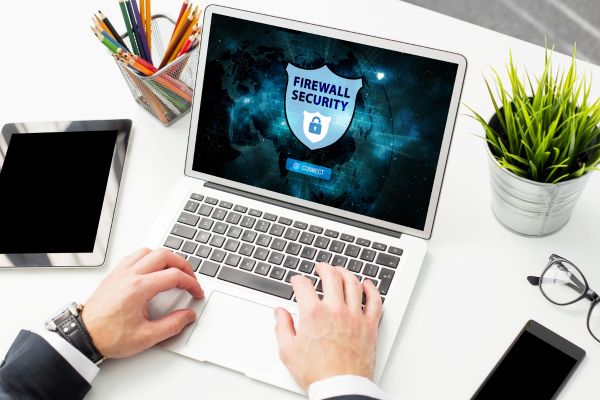In an age where digital privacy and cybersecurity are more important than ever, the term “VPN” has become a familiar part of everyday online conversations. Short for Virtual Private Network, a VPN is a tool designed to enhance your internet privacy and protect your data from prying eyes. But while VPNs are often praised as essential security tools, they are not without their drawbacks. Understanding the VPN benefits and risks is crucial for anyone who spends time online, whether you’re working remotely, streaming content, or simply browsing the web.
What Is a VPN and Why Is It Used?
A VPN acts as a secure tunnel between your device and the internet. When you connect to the internet through a VPN, your data is encrypted and routed through a remote server operated by the VPN provider. This process masks your IP address, making it appear as though you are browsing from a different location. The primary intention behind using a VPN is to protect your privacy, bypass censorship or geo-restrictions, and maintain anonymity in a digitally connected world.
For instance, someone using a public Wi-Fi network in a café could be vulnerable to hackers attempting to intercept their data. A VPN shields this data, ensuring that sensitive information like passwords or banking details remains safe. At the same time, users can access content restricted to certain regions by connecting through servers in those locations.
The Clear Benefits of Using a VPN
Among the most well-known VPN benefits and risks, privacy stands as the leading reason people turn to VPNs. By hiding your IP address and encrypting your data, VPNs protect you from surveillance by internet service providers, government agencies, and malicious actors. This level of encryption is especially important for journalists, activists, and professionals who regularly handle confidential information.
Another powerful benefit is the ability to bypass geographical restrictions. Many streaming services and websites limit access based on your location. With a VPN, users can choose a server in a different country, gaining access to content that would otherwise be unavailable. This feature is not only valuable for entertainment but also for accessing information in countries with strict internet censorship.
VPNs can also help prevent bandwidth throttling. Some internet providers intentionally slow down your connection when you engage in high-bandwidth activities such as video streaming or gaming. A VPN conceals your online activities, potentially preventing these slowdowns and offering a smoother internet experience.
Moreover, for individuals who travel frequently or live in countries with limited access to free information, VPNs serve as a digital lifeline. They offer a way to communicate freely, explore global perspectives, and maintain a connection with the rest of the world.
The Hidden and Overlooked Risks of VPN Usage
While the advantages are compelling, the VPN benefits and risks conversation would be incomplete without acknowledging the possible downsides. One of the most significant concerns is the false sense of security that some VPN users develop. Although VPNs offer encryption and privacy, they are not a complete cybersecurity solution. They do not protect against malware, phishing attacks, or other sophisticated cyber threats unless bundled with additional features.
Another concern lies with the VPN provider itself. Not all VPNs are created equal. Free VPN services, in particular, can be problematic. Some log your data, monitor your online behavior, or even sell your information to third parties. This directly contradicts the promise of privacy and can expose users to even greater risk than not using a VPN at all.
Performance issues can also arise. Because your data is being routed through a remote server, using a VPN can sometimes lead to slower internet speeds. This is especially true when connecting to distant servers or during peak usage times. While some premium VPNs minimize this slowdown, it remains a common concern.
Legal and ethical implications must also be considered. In some countries, the use of VPNs is restricted or even banned. Users should always research local laws and regulations to avoid potential legal consequences. Additionally, bypassing geo-blocks for copyrighted content may violate terms of service or local copyright laws, adding another layer of complexity.
Balancing Security and Usability with a VPN
Given the VPN benefits and risks, making informed decisions about VPN usage is essential. Opting for a reputable, no-log VPN service with transparent policies and strong encryption protocols can significantly reduce the risks. Furthermore, understanding that a VPN is just one part of a comprehensive cybersecurity strategy helps set realistic expectations.
Combining VPN usage with good digital habits—such as regularly updating software, avoiding suspicious links, and using antivirus programs—provides a more secure and resilient online presence. While VPNs can help conceal your identity and activity, they cannot replace the need for awareness and responsible behavior in cyberspace.
The balance between privacy and performance is another aspect worth evaluating. If streaming speed or real-time gaming is a priority, test various servers and VPN providers to find one that meets your needs without significantly compromising speed. Always prioritize providers that maintain transparency regarding speed limitations, logging policies, and user rights.
Who Should Consider Using a VPN?
Understanding VPN benefits and risks can help determine whether you need one and which features to prioritize. For professionals working remotely, a VPN is often a necessity. It ensures the confidentiality of work-related communications and provides access to internal resources from anywhere in the world.
Frequent travelers can benefit from accessing websites and services as if they were back home. For instance, online banking systems often block foreign login attempts as a security measure. A VPN can help maintain consistency and reduce the hassle of being locked out of essential services while abroad.
On the other hand, casual users must weigh the benefits against the potential performance impact. If privacy is not a major concern and all online activities are done through trusted networks and platforms, a VPN might be less of a priority. However, even in these cases, having one ready for use during travel or when connecting to public Wi-Fi is a wise precaution.
VPNs in the Evolving Landscape of Online Privacy
As global conversations around digital rights and surveillance continue to evolve, VPNs have taken center stage as tools of empowerment and autonomy. They represent a countermeasure to increasing data collection and a way to maintain control over one’s digital identity.
At the same time, the growing demand for VPNs has flooded the market with countless providers—some legitimate, others less so. This makes research and discernment even more important. Transparency reports, independent audits, and third-party reviews are valuable tools when choosing the right VPN service.
Looking ahead, the role of VPNs is likely to expand. As smart devices and interconnected systems become more common, the demand for universal, cross-device privacy solutions will grow. VPNs may evolve to offer more seamless integration with browsers, apps, and operating systems, further simplifying the path to online security.
Conclusion: Making Smart Choices in a Connected World
Navigating the digital world requires more than just awareness—it demands action. Understanding VPN benefits and risks allows users to make educated decisions that align with their values, habits, and needs. While a VPN is a powerful tool for enhancing privacy, bypassing restrictions, and improving online freedom, it is not without its challenges. Users must weigh the pros and cons, choose trustworthy providers, and maintain complementary security practices.
In the end, the value of a VPN lies not just in what it does, but in how wisely it is used. By staying informed, users can take control of their digital lives with confidence, knowing they have the tools to stay secure, anonymous, and free in an increasingly connected world.







